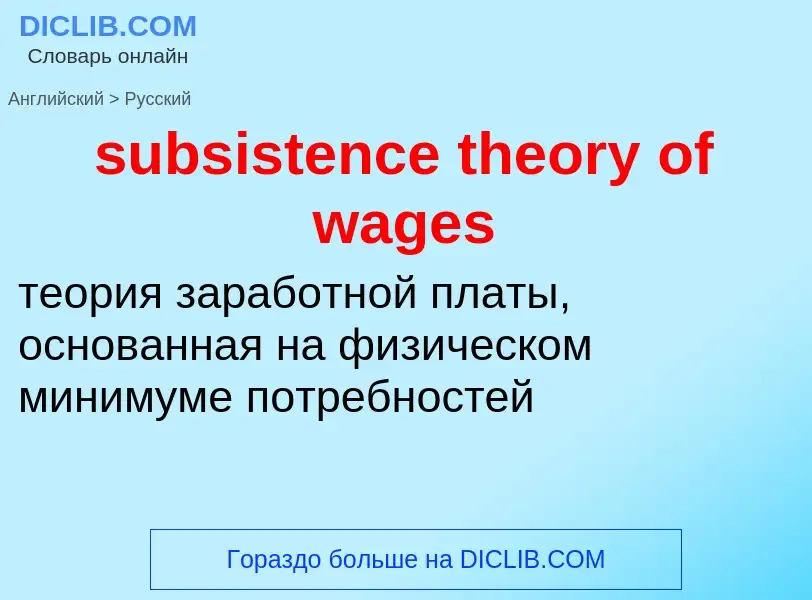Перевод и анализ слов искусственным интеллектом ChatGPT
На этой странице Вы можете получить подробный анализ слова или словосочетания, произведенный с помощью лучшей на сегодняшний день технологии искусственного интеллекта:
- как употребляется слово
- частота употребления
- используется оно чаще в устной или письменной речи
- варианты перевода слова
- примеры употребления (несколько фраз с переводом)
- этимология
cutting of prices ‹of wages› - перевод на русский
[steitəvði'ɑ:t]
общая лексика
текущее (современное) состояние (соответствующее последним достижениям)
современный
прилагательное
общая лексика
достигнутый, реальный, внедренный
книжное выражение
достигнутый
реальный
внедрённый (в противоп. планируемому, экспериментальному)
Определение
.
Википедия
The iron law of wages is a proposed law of economics that asserts that real wages always tend, in the long run, toward the minimum wage necessary to sustain the life of the worker. The theory was first named by Ferdinand Lassalle in the mid-nineteenth century. Karl Marx and Friedrich Engels attribute the doctrine to Lassalle (notably in Marx's 1875 Critique of the Gotha Program), the idea to Thomas Malthus's An Essay on the Principle of Population, and the terminology to Goethe's "great, eternal iron laws" in Das Göttliche.
It was coined in reference to the views of classical economists such as David Ricardo's law of rent, and the competing population theory of Thomas Malthus. It held that the market price of labor (which tends toward the minimum required for the subsistence of the laborers) would always, or almost always, reduce as the working population increased and vice versa. Ricardo believed that this happened only under particular conditions.

